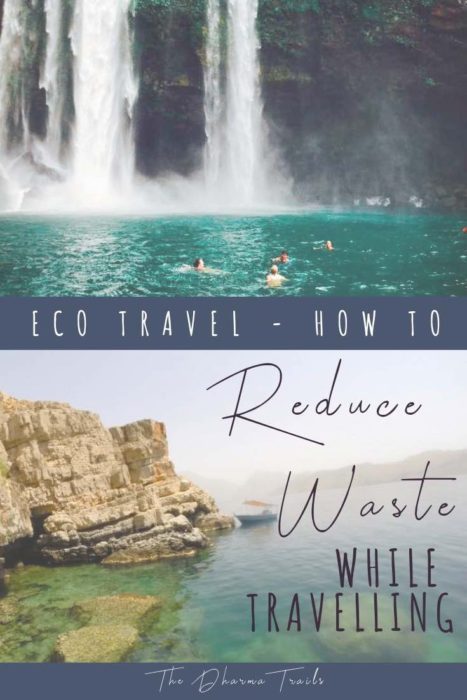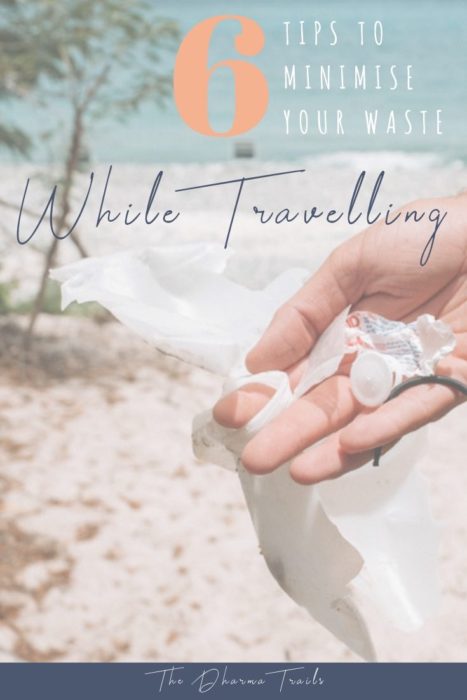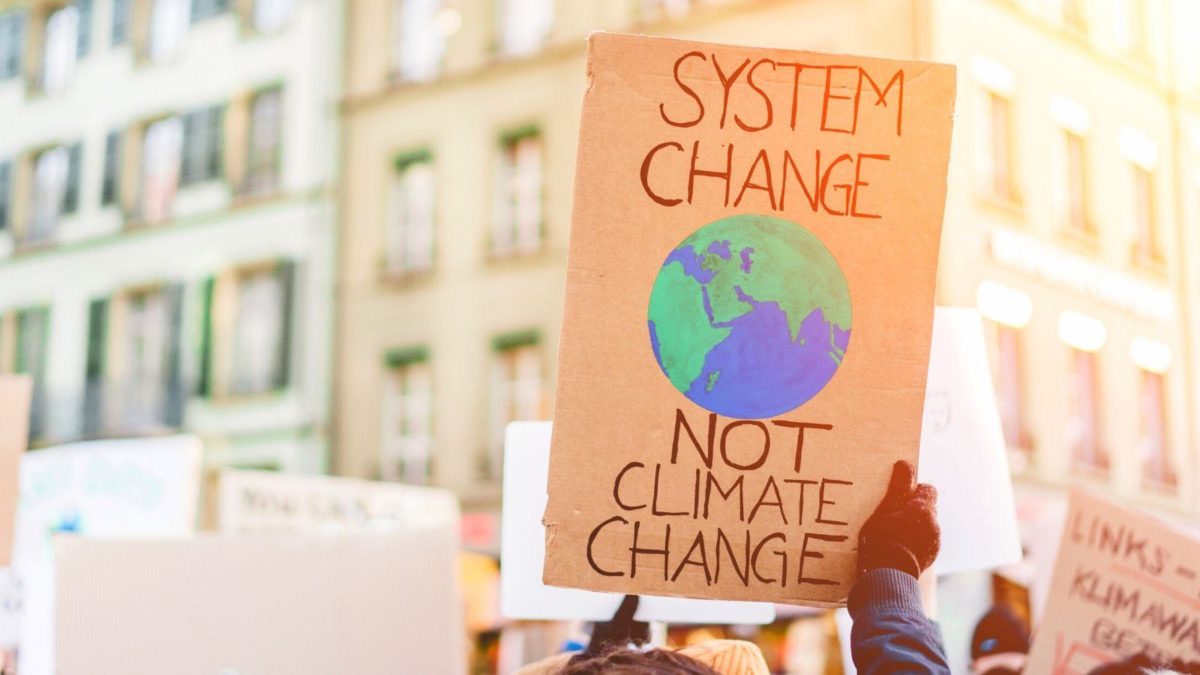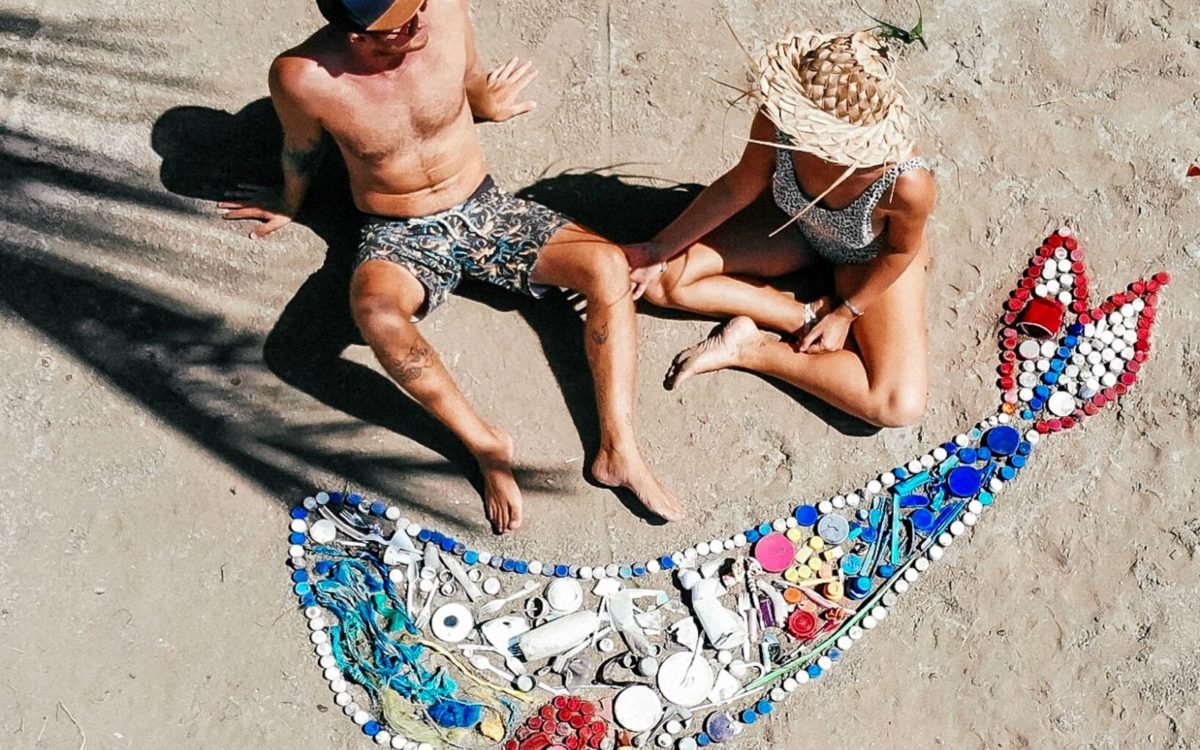Let’s face it, waste is not a sexy subject. But, if you’re like us, you’ve noticed more and more waste in places it shouldn’t be. We’re constantly aiming to reduce waste while traveling. Especially, when in the act of eco travel.
Exploring the world and finding remote beaches or mountains with piles of rubbish and waste leaves you with a gut-wrenching feeling.
In a time where:
- the amount of plastic produced in a year is roughly the same weight as the entire weight of humanity (all living people) and,
- patches of plastic are floating in the ocean three times the size of France
We should be not only aware but active in our choices as we continue to travel the planet.
Table of Contents
What Is Our Waste Exactly?
We hear the term a lot. “Reduce your waste”. But what exactly is our waste? The term is quite broad and covers a lot of different things that you might be doing (consciously or unconsciously) on your travels.
First of all, you can waste:
Or you can create waste:
- Pollution
- Garbage
We are focused specifically on being active about reducing our waste while traveling, and we’ve broken it down into a few main categories:
Waste In Our Daily Lives
Before we leave home
Our homes are huge resources, full of energy sucking devices. Making sure that unnecessary power is not being used while we are away is essential. For that reason ideas of how to reduce your domestic energy footprint can be useful.
transport/Getting around
There are various modes of transport for various occasions. Sometimes you don’t have a choice. But being aware of the amount of energy and waste created by each mode is essential in curating your way into a sustainable future.
Activities
It is a very broad category. But again, eco travel is about being not only aware but active is essential.
In most cases, common sense will ensure a better outcome. For example:
- Ordering drinks at a bar. Taking your own, reusable straw is one way to reduce a significant amount of waste over time.
- Going on a snorkeling trip in Jamaica? Rent gear when you get there instead of buying a set and using it once. Less stuff needed to carry, less stuff wasted at the end of the trip.
- Staying in a resort? Try an eco resort, with low waste built into their ethos and practices.
What We Buy & Our Waste Footprint
Products
Conscious choices about what we buy makes a huge difference to our water, energy and waste footprint. When you learn how to eco shop, you’ll find you don’t need much on the road.
Therefore, buy less stuff (as with all sustainable travel posts so far), or choose long-lasting or reusable products (like switching to plastic free toothpaste options). You’d be surprised how little you really need to be happy on the road.
You’ll inevitably pack more than you need. So, don’t bring or buy anything you really don’t need.
Food
When you’re on the move and eating out a lot of the time, you could be contributing to the staggering volume of food waste that occurs around our globe. (See details below).

Waste At Home Compared To Travel
home
- The United States Environmental Protection Agency states that about 50% of household waste is organic (paper, yard trimmings, food waste, etc.).
- The next biggest source is plastic at about 15%.
Away
- This will depend on where you go and what you do. But paper and yard trimmings are not likely to be one of your biggest contributors.
- The likelihood is that you will use more single-use plastic items for convenience on the road (takeaway food/fast food/energy bars/drinks in bottles/hotel soap bars/airline blankets/etc.)
- Without any real studies on this number it’s hard to say, but we could assume your travel waste would be much higher than the household of 15%, let’s say even double.
- Learn more about eco travel and how to say no to plastic
Where Our Waste Ends Up
How does rubbish end up in the sea? On a beach? On a mountain?
The 3 main sources of waste/pollution are:
- Litter. This is self-explanatory. Don’t litter, it ends up going further than you think.
- Down the drain. Harmful chemical and microplastics from synthetic firbers and toiletries go down the drain, into the waterways and into the sea (try organic materials or toiletries).
- Landfill overflow. Landfills are big stockpiles of trash. And,it’s surprisingly easy for wind gusts to blow this trash out of the pile and into the wild (where it shouldn’t be…ever).
Plastic Pollution In Our Oceans
We tend to spend most of our time (lately) on tropical islands or by the sea. So, we’ve really noticed the impact our (humans) waste is having on the ocean.
But what exactly are we seeing? The results are shocking, yet true. Here are the top 10 items found in marine rubbish by the Ocean Conservancy
It really makes us want to reduce our waste while travelling!

what’s that saying about us?
- We’re throwing way too many cigarette butts where they should not be going! Way too many. Please, if you see someone drop one on the ground, say something.
- Food wrappers! We’re living in a busy world, yeah, sure. But there’s always time to bin it.
- Plastic bottles…well. We all know they’re a terrible solution.
The 6 “R’s” Of Reducing Waste
The concept of the reducing “R’s” has been around for some time. However, how does it relate to eco travelling specifically? We’ll explore this in more detail.
But first; what are the 6 “R’s” to reduce waste while travelling?
- Refuse
- Reuse
- Reduce
- Recycle
- Rot
- Remove
1. How To Refuse Plastic
The basic concept of economics is actually quite simple. Supply is encouraged by demand. If there is no demand for an item, the item will not likely be produced.
If we keep the demand for plastics out of circulation, there would be no need for recycling them. But, until companies stop making plastic straws, and plastic bottles, we have to start being vigilant about saying “no”. Let’s consider aiming for zero waste shopping and living.
We can start by saying no to plastic.
Refuse the plastic bags at the shops, refuse the takeaway cups and containers. It’s a lot easier to do if you are prepared and have replacements for single use plastics.
Sometimes you need to refuse before you are even offered. “No straw please” – this generally works. Check out our eco travel guide for useful translations like this in 10 different languages.
“Did you know that 500 MILLION plastic straws are used EVERY DAY in America. That’s enough to circle the Earth twice”
Bring your reusable items with you on your travels and say no to plastic & potential waste.
2. How To Reduce Plastic
It’s simple, buy less and buy better. Investing in quality goods and reusable products that last, will reduce your need for single use plastic items.
Minimalism is the key
- Reduce the number of things that you buy
- Don’t impulse shop
- Only buy what you need when you need it.
- Purchase unprocessed and unpackaged items where possible.
- Go to the markets for your fruit and veg, rather than buying the pre-packaged salads and stir-fry’s.
- If there is an item packaged in glass or packed in plastic, choose the glass, as this can be reused in a multitude of ways.
- If you are going to buy something in plastic. Make sure it’s it refillable, or reusable, so that you can use them over again.
Get creative
Part of learning how to eco shop, is getting creative with what you have
- Can you buy in bulk somewhere to reduce individual packaging?
- Can you make your own crackers instead of store bought, packaged ones?
- How about cookies or treats?
- Can you make your own cleaning products and beauty products? (coconut oil is a great one to use for all kinds of things)
Give it a try, REDUCE, it will be better for you and the planet. Save the plastic packaging.
3. How To Reuse Plastic
When you’re travelling, versatility and reusability is key. Why? Space. You want less stuff to carry. Not everything is reusable. But, if you choose items consciously to begin with, reuse becomes a lot easier and reduce waste while travelling.
There’s a couple of main areas where reuse can be done:
Clothing
- We’ve said it before, but sustainable fashion is here, and it’s great.
- Items like the ones from Kameleon Rose can be worn in 20 different ways. This means you buy/pack less clothing for your eco travels.
- Cut up an old t-shirt to make a new top, or a bandana or a rag.
- Donate your old clothes to a foundation or charity
plastic
- If you’re going to use plastic make it reusable (drinking water bottles, coffee cups, menstrual cups, etc.)
- If you do go to the shop and get a plastic bag because you really need one, keep hold of it. They can be handy to keep stuff in your bag dry. Then use it next time you go to the store.
electronics
- Planning to upgrade your phone before you go on a trip? Take your old phone with you and donate it to a charity or back to the electronic store you bought it from. Apple has a recycling program where you can sell your old phones/laptops back to them!
4. How To Recycle Plastic
This is not always easy; especially when travelling. It can be hard to know how and where to recycle your plastic.
Do your research before you travel
Some countries have great recycling systems, others…not so much. Ideally, if you’re following the above-mentioned points (1,2,3) your need for recycling will be minimised.
In a lot of countries (through SE Asia, Mexico, Caribbean, some South American and European) they actually recycle glass drink bottles (e.g. beer & soft drinks). You’ll notice that the edges of the bottles are a little roughed up…this is a good sign. It means the bottles have been reused. When you’re done, don’t throw them in the bin. If there’s no recycle bin, you can often gift them to any locals you see collecting bottles, or return them to the shop/bar you purchased from.
every country is different
Every country is different, with their own standards. Be aware. Education is a great form of active participation when it feels like there is no hope.
5. How To Rot & Compost
It will depend what kind of travel you are doing as to what and how you eat on the road. But here are some things to keep in mind on your eco travels.
“In the United States alone, about 63 million tons of food are wasted each year, with 40% coming from consumer-facing business – including restaurants and hotels”.
Waste In Hotels
As far as food waste goes, hotels are generally the worst.. This is due to the large volumes and variety of food they have to keep in storage for all of the potential customer requests.
“On average hotels waste 35 per cent of all food purchased, with some exceptions like a remote luxury resort in the Maldives,where the figure reaches a stunning 42 per cent” .
Unfortunately, much of the food waste occurs in poorer countries such as those in Asia, for example, “where most of the 800 million hungry people live”.
Avoid eating buffets! Buffets are one of the highest sources of food waste in hotels! There are more and more eco resort options nowadays that have great food recycling programs and low waste kitchens.
But there is hope. As the idea of food waste comes to the forefront of awareness, people are expecting transparency and improvements to the current systems.
“Accor Hotels this year announced a goal to reduce food waste by 30 per cent across its international portfolio of 4,200 properties by 2020”
“The Accor Hotel Group has also committed to installing 1,000 urban vegetable gardens by 2020, like the one at the Pullman and Novotel hotels in New Delhi Aerocity”.
“Marriott International has also made a global commitment to reduce food waste by 50% by 2025″
Learn more about eco resorts and where to find eco accommodation!
Waste In Restaurants
When you’re thinking of travelling and food, you should think one thing… Eat local. Eco travel should always consider the local economy when possible.
Eat local food when you can. Why?
- That’s the point of travelling, to see other cultures and try other culture’s food
- Local food is being transported less distance than imported food and therefore, generally, has less of an energy footprint.
- Remember meat generally has a much higher water footprint than vegetables.
- Supporting the . local community will enrich your experience.
- Eating where the locals eat is the best way to immerse yourself in the true culture.
- Small, local restaurants with only a few specialty items on the menu will generally have much less food waste than large hotel chains.
Slow travel
We’ve changed our pace on the travelling circuit lately. The idea of “slow travel” is big in the sustainable movement. It’s brilliant, because you stay somewhere for a longer period of time and really get to know the place.
Options like Housesitting have made staying in a “home” much more plausible. You can go to the local market, buy local produce, and make your own food with minimal waste.
See how to become a housesitter here.
On the go
Catching buses, trains and planes means food can be scarce. Plan ahead.
Bring snacks! Seeds in a reusable container lasts a long time and can curb the need for a hurried burger (which has a massive water footprint).

6. Remove Plastic Waste
This one is super important.
There is an unspoken rule that I learned when I first started travelling.
“Leave a place better than you found it, with nothing but footprints and memories”.
(Nowadays we leave with photos and videos too…) Eco travel is not only about having a low environmental footprint, but about improving the life and longevity of a place when you visit.
Encourage
Moving beyond awareness into action, we can no longer accept our own waste mistakes. We must take on and encourage the removal of others.
Next time you are exploring a remote beach or mountain and see some rubbish, pick it up.
Take 3 for the sea
An amazing initiative is #take3forthesea. Their motto is simple: when you’re at the beach, pick up 3 bits of rubbish, (snap a photo -if you want to share it) and bin it.
3 pieces is not asking much. And, of course you can clean more, but the idea is great for encouraging the shift from awareness to action.
Keep a bag with you
We generally explore new places on our eco travels with a backpack or a day bag. In it we’ve designated a small bag to pick up some rubbish when we go. It can be an old plastic bag that you’ve picked up to reuse, or a designated reusable bag.

The Facts
There are plenty of horrible, shocking, facts that you can find about our global waste problem. And sometimes, a little shock to the system ain’t a bad way to get you thinking.
There’s no doubt that facts like these make you want to change the way you live and travel, and it should (if you’re a red blooded, air breathing being with a soul):
- “Marine debris is one of the most pervasive and pernicious global threats to the health of the world’s coastal areas, oceans and waterways,”
- “Nearly every seabird on the planet now eats plastic”
- ONE MILLION plastic bottles are bought EVERY MINUTE around the world — and that number will top half a TRILLION by 2021. Less than half of those bottles end up getting recycled.

The Future Of Waste
Sustainability in travel is on the rise.
A study by Booking.com found that 65% of travellers are showing preference for hotels that can provide environmental credentials.
And, there is now a multitude of options for:
- staying in locations with environmentally conscious practices
- buying clothing for your travels with sustainable fabrics and colours
- Ways to reduce your single use plastics while on the road
- Natural and organic toiletries for travels that have significantly reduce negative impacts on our waste
Awareness To Action
As far as we see it, this wave of sustainable travel is really the key to spreading a much-needed message around the world.
And what better way than to be hands on?
Go to locations, encourage improvement and education. Things can really change (The Cape Town water crisis, 2018 is an amazing example of how people can, by doing their small part, save a city from running out of water!). Create slogans like these save water and save earth slogans to build awareness.
Awareness is one thing, but action is now required.
We hope this message finds you well and can spread to your travels and onward encounters.
Like This Article? Pin it!




Aaron is one of the co-founders of The Dharma Trails. His background in marine eco tourism and writing have blended together to create the eco travel platform read by users around the world.




Great post! Really informative. We agree that one of the best things to do is to pack mindfully and have “reducing waste” on your mind before you leave home!
We wrote a post a while ago with our top tips to reduce plastic consumption while traveling, think you guys would like it 🙂 https://thegreenshoestring.com/2017/07/28/use-less-plastic-when-traveling/
Oh thanks so much! Will check out your post now.
It’s true, you really need to start thinking about it before you travel! Just all the time really 😉
Cheers
Great info! We all need to be more environmentally conscious when we travel. Thanks for spreading the word!
Oh thanks Sarah, really nice to hear that from a like minded traveler!
Great article! This is such a well written and comprehensive guide. It’s a good reminder that even when you think you’re doing a lot, you could probably always do a bit more. The 6 R’s are also a really helpful method of remembering! We prefer slow travel, as well. Right now we’re on a bit of a whirlwind, but once we get out of Europe, we want to slooooow down and really get to know the places we’re in and enjoy local life rather than just constantly feeling like tourists.
Slow travel is where the magic happens!
Glad to hear you enjoyed the post. We’ve been enjoying the slow travel life, think we will keep going as long as we can!
Cheers
This is such a useful post guys! I consider myself to be a green traveler but sometimes not sure what to do and how to act in certain situations when it comes to reducing my waste. In general, wanted to say that I really love your blog, have been reading other posts too and enjoyed every single one!
Thanks Anya!
So nice of you to say. The more we looked into the waste issue, the bigger it got…
There are definite ways to help reduce though. Hope you enjoy our new posts too.
Cheers